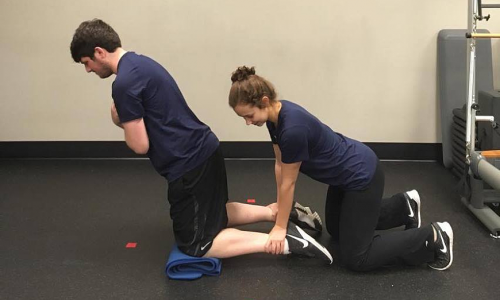
How do you want to live at the end of your life?
This loaded question stirs up emotions for people of all ages. Some feel discomfort talking about end-of-life experiences. Others are ambivalent to advance care planning rationalizing that they are not old enough to plan for such things. Others are just plain confused as to whom they should be speaking to and what they should be planning.
However, how we wish to spend the end of our lives is a conversation everyone should have, considering that (fun fact!) we will all pass away one day. Despite this, roughly 55% of us never have that conversation.
On my co-op with Langley Memorial Hospital, I helped maintain projects that supported senior health. This included delivering workshops for both the general public and health professionals on the basics of seniors care. Helping facilitate the PAUSE* workshop - to be explained later in this article - was a learning opportunity for me, and a great way to build on my experiential knowledge working with older adults. As the Canadian population ages, the world of geriatric care expands. Thus the question we must ask is whether we have the ability to support seniors' needs as we venture into an age-friendly society.
When I joined the team at Langley Memorial Hospital, my supervisor Shannon Ediger recommended the book Being Mortal by Dr. Atul Gawande as a way to learn about some of the key issues health professionals currently face regarding end-of-life care.
Being Mortal weaves personal anecdotes from health care professionals with facts about geriatric care into a comprehensive analysis of current issues affecting older adults. After reading Dr. Gawande’s book, I had many thoughts, opinions, and questions to share with Shannon. So I sat down to interview her on topics including ranging from geriatric care and advance care planning to palliative care.
Do you believe that the average Canadian is currently capable of caring for their elderly parents or relatives?
No, they should be but they aren’t. The main reason being the psychological, social, and financial costs of providing adequate care for older parents.
So, it’s not a time commitment, but rather a financial constraint?
People can always find time to care for their parents. It’s when the senior’s now-adult children are also near their own retirement where they must choose to spend their own retirement funds or take our loans to provide care for their parents. They really become quite stuck between their own plans for retirement and caring for their parents.
What do you think it will take to create a cultural shift in the way we approach end-of-life conversations?
There should be a push from the public and health professionals for a conversation to take place. There also needs to be intentional efforts to have discussions about advance care planning. We are creatures of habit and we don’t like to talk about death. We tend to table that conversation until it’s too late or too rushed. When having conversations about end-of-life care, weighing the benefits versus the risks of medical procedures that prolong life should be considered. It takes a certain amount of planning to make sure your loved one is getting the care they need and more importantly, want. That’s why it’s important to start planning now by filling out an Advance Care Plan and keeping it in your Greensleeves (a folder with all your important health planning documents, such as the Medical Scope of Treatment form.)
Dr. Gawande talks a bit about the upcoming challenges to the health care system and how it will fare due to a changed family structure where family-centric ideals have been demoted and replaced by prioritization for the “independent self”. With your background in social work, how does this viewpoint match up or differ from what you believe in?
I agree there is a need for balance when setting priorities between your family and yourself. Considering only your needs and wishes often leads to moral distress, guilt, and avoidance if unsafe occurrences happen to the senior in your care. When moving away from a paternalistic model of care, it’s important to accept the mistakes and risks the senior wants to make to the degree it’s possible
What will it take to rekindle an interest in geriatric care, when we face a demographic change that has few resolutions?
We are pack animals, and in the long term, isolative independence doesn’t create survival possibilities. It's important to consider building a support system that considers health care, social, personal, financial and psychosocial goals through collaborating and respecting individual wishes for care.
When it comes to providing geriatric-specific services in the health care system, why are these services often expensive to maintain and short-lived?
It's hard to quantify the saved cost of emergency and acute services as it’s the absence of use you are trying to measure. In many cases, the only way to know how useful your geriatric-specific service is by explicitly asking the patient or client if they would have gone to the emergency room if they hadn’t accessed this new service, but this is subjective. How do you measure something you don’t use?
The thing that struck me the most was the benefits of palliative care, “an approach that improves the quality of life of patients … [through] treatment of pain and other problems”. What are the main barriers that keep older adults from accessing or opting in for palliative care?
People are afraid you’re giving up as opposed to accepting that life is finite and to live it best is to live it the way you choose. There are several requirements to be considered for palliative. One is you need to accept a DNR (Do Not Resuscitate) code. You need to accept only comfort care and not be actively receiving medical treatment for your condition.
Finally, Stephen Gould is quoted in “Being Mortal” and has two contrasting perspectives on death. He says:
“It has become … too trendy to regard the acceptance of death as something tantamount to intrinsic dignity… I agree with the preacher of Ecclesiastes that there is a time to love and a time to die—and when my skein runs out I hope to face the end calmly and in my own way. For most situations, however, I prefer the more martial view that death is the ultimate enemy—and I find nothing reproachable in those who rage mightily against the dying of the light.”
Which view do you agree with?
Personally, I believe one should be valiant in their health as long as possible and live as much as they can in the way they want. However, there is an importance in acknowledging the finite. This leads back to the importance of having those conversations with your loved ones about their wishes and the kind of care they wish to receive. That’s why we put on PAUSE* workshops. The underlying idea is that we want all caregivers, formal and informal, to get a good idea of the seniors' background and act upon their wishes, values, and beliefs. Some of the questions one might ask are: what do they value? quality of life or quantity of time lived? The caregiver’s capacity, financially and socially, should also be considered as a factor when planning geriatric care as it is important to prepare for all eventualities.
*Note from Seerit: PAUSE refers to a basic seniors’ caregiving concept. You first picture (P) what you know the senior’s past, present, and future. Then, you act (A) on the senior’s values, wishes and beliefs. These two steps then allow you to understand (U) and enhance the senior’s (S) experience (E).
As the Canadian population pyramid becomes inverted, I urge those interested in working in the healthcare field to consider the geriatric-specific issues our community faces in the coming years, and what we can do about them. No matter your age, we all need to consider the kind of care we’d personally want if we were unable to speak for ourselves. There are some great resources that will help you with just that. I suggest checking out B.C.'s Advance Care Planning resource to get started with your own advance care plan.
Beyond the Blog
-
For more opportunities like Seerit's, visit SFU's Health Sciences co-op page!

















